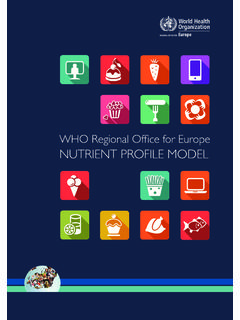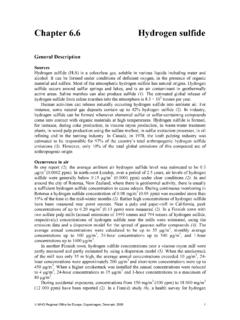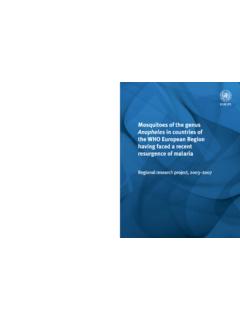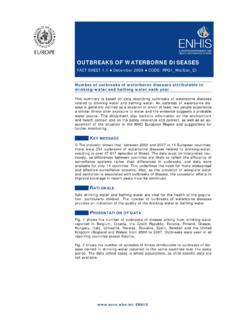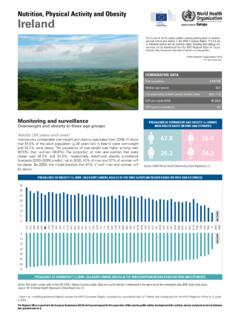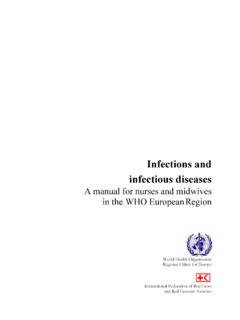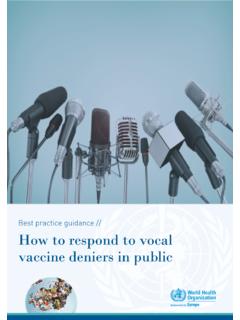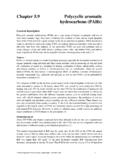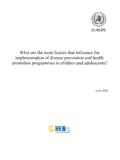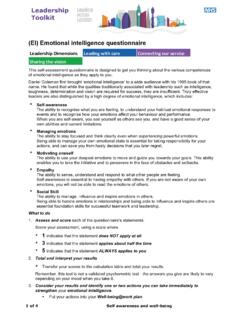Transcription of Weight bias and obesity stigma: considerations for the WHO ...
1 Weight bias and obesity stigma: considerations for the WHO European RegionWhat is Weight bias and obesity stigma? Weight bias is defined as negative attitudes towards, and beliefs about, others because of their These negative attitudes are manifested by stereotypes and/or prejudice towards people with overweight and obesity . Internalized Weight bias is defined as holding negative beliefs about oneself due to Weight or Weight bias can lead to obesity stigma, which is the social sign or label affixed to an individual who is the victim of obesity stigma involves actions against people with obesity that can cause exclusion and marginalization, and lead to inequities4 for example.
2 When people with obesity do not receive adequate health care or when they are discriminated against in the workplace or in educational do people experience Weight bias and stigma? obesity stigma is ubiquitous. Detailed studies reporting on the situation in Europe are generally lacking, but a recent study from one country in western Europe found that of people with obesity experienced stigma. For people with severe obesity , the figure was much higher 38%.5 There is a lack of multinational studies comparing Weight -biased attitudes, but a recent study involving the United States, Canada, Iceland and Australia concluded that levels of Weight -biased attitudes are similar across Individuals with obesity experience stigma from educators,7 employers,8 health professionals,9 the media,10 and even from friends and Data from the Rudd Center for Food Policy and obesity indicate that: - school-aged children with obesity experience a 63% higher chance of being bullied.
3 - 54% of adults with obesity report being stigmatized by co-workers; - 69% of adults with obesity report experiences of stigmatization from health care Although both men and women experience obesity stigma and pressures, women experience more eating-related psychopathology, report experiencing more obesity stigmatization, and internalize Weight bias more than Popular narratives around obesity may contribute to Weight bias by oversimplifying the causes of obesity and implying that easy solutions will lead to quick and sustainable results ( eat less, be more active )
4 , thereby setting unrealistic expectations and masking the difficult challenges people with obesity can face in changing behaviour. Additionally, such narratives often focus discussion around individual behaviours and perceived failures, while neglecting to take into consideration important biological, social and environmental The media often perpetuate stereotypical portrayals of people living with obesity and reinforce the social acceptability of Weight bias. - US studies show that 72% of media images and 77% of videos stigmatize individuals with obesity .
5 - European studies show that media framing of obesity places great emphasis on individual responsibility and may contribute to a culture of Weight bias and - Research shows that a very large percentage of discussions about obesity on social media, especially Twitter and Facebook, are of a fat-shaming - Shaming, harassing or criticizing people about their Weight and/or eating patterns is often used in the media to motivate people to change their behaviour. Research shows that fat-shaming has the opposite Fat-shaming causes stress and may lead to people overeating and avoiding physical are the consequences of Weight bias and stigma?
6 Stigma is a fundamental cause of health inequalities and an added burden that affects people above and beyond any impairments they may Not unlike other forms of stigmatization (on the grounds of race, class, ability, gender, sexual orientation, etc.), obesity stigma is associated with significant physiological and psychological consequences, including increased depression and anxiety, disordered eating, and decreased obesity stigma can also affect the quality of care for patients with obesity , ultimately leading to poor health outcomes and increasing risk of Specifically, Weight bias and obesity stigma have been associated with: - poor body image and body dissatisfaction; - low self -esteem and self -confidence; - feelings of worthlessness and loneliness.
7 - suicidal thoughts and acts; - depression, anxiety and other psychological disorders; - maladaptive eating patterns; - avoidance of physical activity; - stress-induced pathophysiology; - avoidance of medical care. Increasingly, evidence shows that individuals with obesity may internalize Weight -biased attitudes, leading to self -directed shaming and stereotypes about themselves. Weight -bias internalization can also cause harm such as poor self -reported health and health-related quality of life, binge-eating and maladaptive health can be done to address Weight bias and obesity stigma?
8 The WHO Commission on Ending Childhood obesity recognized that obesity among children is associated with stigmatization and reduced educational The Commission also affirmed that government and society have a moral responsibility to act on behalf of children to reduce the health and social consequences of obesity . Failing to act on childhood obesity and to address obesity stigmatization and its associated morbidities will affect the social and health capital of future generations and increase inequity. In endorsing the Commission s report and adopting its recommendations by means of a World Health Assembly resolution.
9 Member States have acknowledged that discrimination against children with obesity by health care professionals and others is unacceptable and that stigmatization and bullying should be WHO Regional Office for Europe can work with Member States in many different ways and through several policy frameworks to ensure that Weight bias and obesity stigma among children and adults are addressed appropriately in national public health activities. This can be achieved, in particular, through: research: collaborating with researchers and experts to identify and validate approaches to reduce Weight bias and obesity stigma;26 exchange: sharing knowledge and best practices at national and local levels.
10 27 prioritization: exploring ways to elevate concerns about Weight bias and obesity stigma in various arenas, including public policy, education and health ,29 Some examples of how Member States might address the issue of Weight bias and obesity stigma are outlined in the table health objectiveSpecific action on Weight bias and obesity stigmaTake a life-course approach and empower people. Monitor and respond to the impact of Weight -based bullying among children and young people ( through anti-bullying programmes and training for education professionals).

